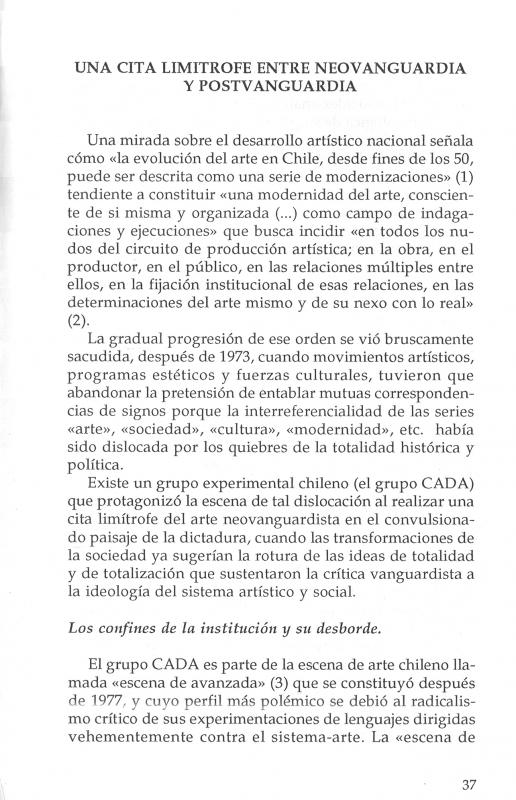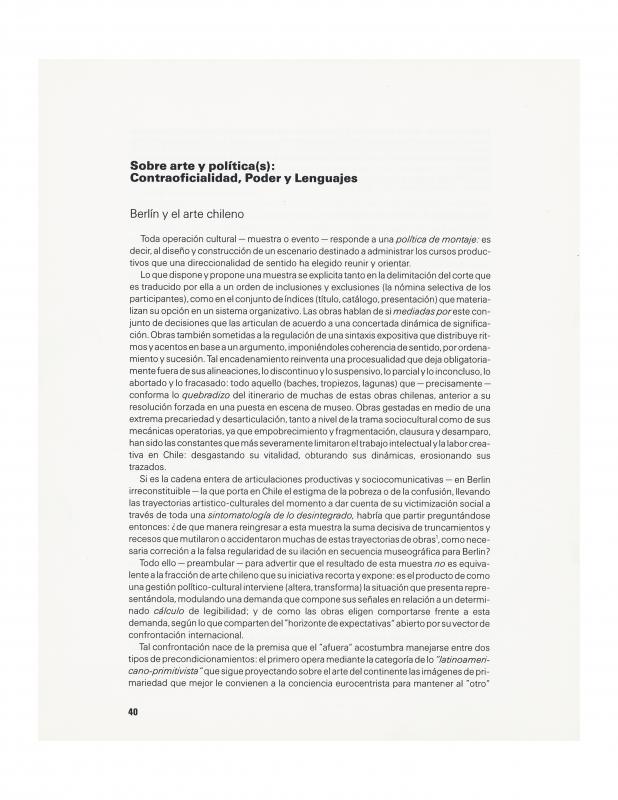“Roturas, memoria y discontinuidades (homenaje a W. Benjamin)” was written by the essayist and cultural critic Nelly Richard (b. 1948). It appears in La insubordinación de los signos (cambio político, transformaciones culturales y poéticas de la crisis) [The Insubordination of Signs (Political Changes, Cultural Transformations, and Poetics of the Crisis)] (1994), a collection of essays about relationships between the neo-avant-garde and the post-avant-garde; the role that the social sciences played in the wake of the dictatorship (1973–90); leftist culture; and the “democratic transition” as seen from the vantage point of cultural criticism. Rather than a purely academic work, this book embraces semiotics, literary criticism, the social sciences, the arts, psychoanalysis, philosophy, and aesthetics in an attempt to address political, ideological, and cultural issues. During the 1990s Richard was the director of the Revista de Crítica Cultural, a forum for critical reflection supported by Chilean and Latin American intellectuals, whose editorial boards included Chilean artists, writers, philosophers, and essayists. [See another essay from La Insubordinación de los Signos in the ICAA Digital Archive: “Una cita limítrofe entre neovanguardia y posvanguardia” (doc. no. 736055).]
Those who see cultural criticism as a template for reflection turn to the intellectuals Walter Benjamin (1892–1940), Theodor Adorno (1903–1969), and Roland Barthes (1915–1980) as theoretical referents when preparing their proposals and readings. In this essay, Richard points to a Benjaminian backdrop to several Chilean works of art that were produced during the military dictatorship as criticism of the regime and of traditional approaches to art. In some of her writings about art, especially in her book Margins and Institutions. Art in Chile Since 1973 (1986), Richard mentions a group of visual artists that she called the Escena de Avanzada. [For more information on this matter see Richard’s “Sobre arte y politica(s): contraoficialidad, poder y lenguaje” (doc. no. 736073).] She also discussed plays and literary works. Memory is one of the key threads of this essay, written in the early days of what was known as the Chilean “democratic transition,” ever vigilant because of the regime’s ongoing machinations disguised as continuity, the possibility of reclaiming democracy, and the challenge of building consensus in the pursuit of justice, according to the author.


